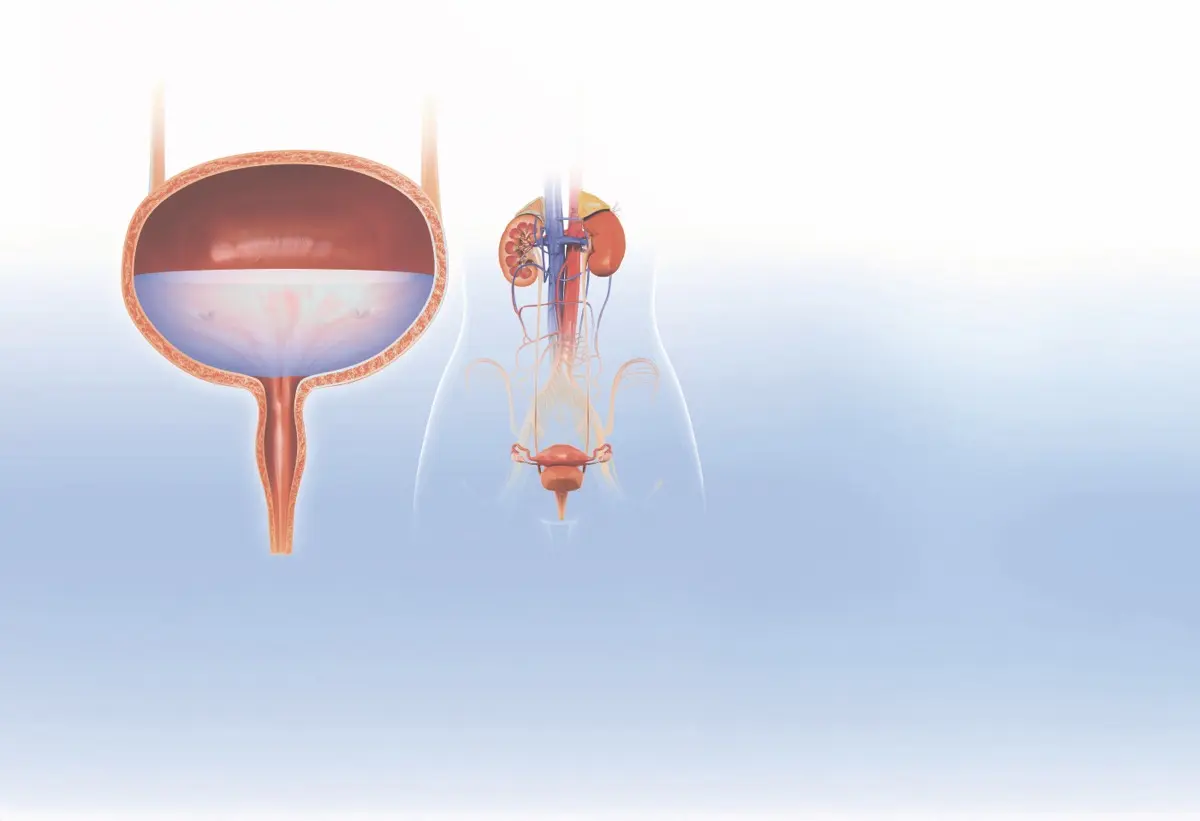News & Articles

Bladder Cancer Treatment: Teamwork for Better Outcomes

Working together, surgeons and medical oncologists have improved treatment outcomes, survival rates and quality of life for patients.
TREATING CANCER OFTEN REQUIRES TEAMWORK. Urothelial cancer — a type of cancer most commonly affecting the bladder — is no exception. Because bladder cancer can return frequently and progress quickly, a carefully coordinated plan involving both surgery and medical therapies such as chemotherapy, immunotherapy and targeted treatment is essential.
When surgeons and medical oncologists collaborate on treatment plans, patients benefit from smoother recoveries, fewer complications and better long-term outcomes.
What is Urothelial Cancer?
Commonly known as bladder cancer, urothelial cancer usually develops in the bladder in about nine out of 10 cases. But it can also form in other parts of the urinary tract where urothelial cells are found, such as in the renal pelvis or ureters, the tubes linking the kidneys to the bladder.
Around the world, bladder cancer is the ninth most common cancer. In Singapore, it ranks among the 15 most frequently diagnosed cancers. Men are up to four times more likely than women to develop bladder cancer, but women tend to be diagnosed later, when the cancer has reached an advanced stage, resulting in poorer outcomes.
Early diagnosis and prompt treatment are critical. When bladder cancer becomes muscle-invasive — spreading deeper into the bladder wall or beyond — a more comprehensive plan is required. This typically involves multimodality treatments such as surgery to remove the bladder (radical cystectomy), systemic therapies like chemotherapy and immunotherapy, and local treatment such as radiotherapy.
Surveying Surgical Options
Doctors choose the most suitable surgery based on factors like the tumour’s stage, grade, size and location.
The least invasive surgery is called a transurethral resection of a bladder tumour (TURBT), which is commonly performed when the tumour has not invaded the bladder muscle layer. The surgeon inserts a cystoscope — a thin metal tube with a tiny camera — through the urethra into the bladder. Tiny surgical instruments, such as a heated wire loop or laser, are then used to remove or destroy tumour tissue.
For cancers that have spread deeper into the bladder muscle (known as muscle-invasive bladder cancer, or MIBC for short), a radical cystectomy might be necessary. This procedure involves removing the entire bladder, nearby lymph nodes and surrounding organs. For men, this can include the prostate and seminal vesicles; for women, the womb, fallopian tubes or ovaries and part of the vagina may also be removed.
Since 2003, robotic cystectomy has become an advanced surgical option. Robotic surgery allows for more precise removal of cancer tissue through smaller incisions, significantly reducing blood loss, transfusions, hospital stays and complications.
In selected patients with muscle-invasive bladder cancer, it may be possible to avoid removing the bladder. The preferred option for bladder preservation is chemotherapy plus radiation, which is given after TURBT.
Chemotherapy, Immunotherapy and Other Treatments
There are many systemic treatment options available to patients with bladder cancer depending on the stage of their cancer. Systemic treatment options refer to chemotherapy, immunotherapy or targeted therapy.
For those with early-stage, non-muscle-invasive urothelial cancer, immunotherapy treatments are often effective. The most widely used is Bacillus Calmette-Guerin (BCG), which is derived from bacteria similar to the type that causes tuberculosis. BCG activates the immune system to recognise and attack bladder cancer cells.
For patients with muscle-invasive bladder cancer who need radical cystectomy, a combination of chemotherapy and immunotherapy is typically administered before surgery. This combination approach has been shown to improve survival outcomes compared to surgery alone.
For patients with advanced or metastatic bladder cancer, there have been many breakthrough treatments. In 2023, the United States Food and Drug Administration approved a two-drug combination of enfortumab vedotin and pembrolizumab (EV/pembro) to treat locally advanced or metastatic urothelial bladder cancer.
Enfortumab vedotin is an antibody-drug conjugate. Antibody-drug conjugates link cancer-fighting drugs like chemotherapy with antibodies designed in a lab to recognise cancer cells. This drug combination delivers powerful doses of medication while limiting negative side effects, and has significantly improved the survival of many patients with metastatic urothelial cancer.
Targeted therapy drugs are designed to stop or slow the growth or spread of cancer. Erdafitinib, an oral targeted therapy, is currently approved to treat metastatic bladder cancer with specific genetic mutations in the fibroblast growth factor receptor.
These advanced therapies have significantly improved outcomes for patients, even those who previously had limited treatment options.
Why Teamwork Makes the Difference
The strength of effective bladder cancer care lies in collaboration between surgeons and medical oncologists from the start. Historically, relying solely on one type of treatment — surgery or chemotherapy alone — has proven insufficient. Chemotherapy alone results in responses in fewer than 30 per cent of patients, and surgery alone often leads to high recurrence rates, between 50 and 90per cent, for patients with advanced cancer.
Today, specialists working together can tailor treatment plans and maximise the strengths of each approach. Patients receive a more comprehensive plan that not only significantly reduces cancer recurrence but also enhances their overall quality of life, often preserving bladder function and independence.
Thanks to advances in medical technology — including artificial intelligence for faster, more accurate diagnosis, robotic surgery and cutting-edge therapies — patients facing bladder cancer now have a wider range of highly effective treatment options.
For patients and doctors alike, teamwork makes a difference and offers hope and better outcomes to those fighting bladder cancer.
| POSTED IN | Cancer Treatments |
| TAGS | cancer drugs, cancer latest breakthrough, cancer quality of life, cancer survivorship, chemotherapy, immunotherapy, new ways to treat cancer, robotic surgery, surgery, targeted therapy |
| READ MORE ABOUT | Kidney Cancer |
| PUBLISHED | 01 June 2025 |
